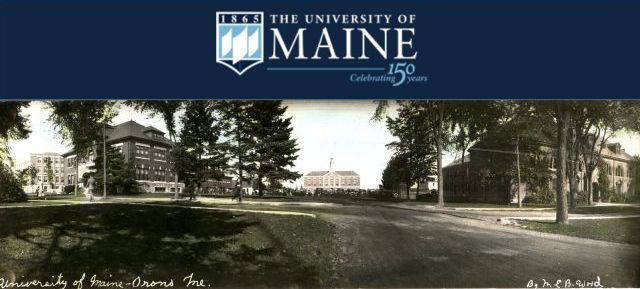
General University of Maine Publications
Document Type
Other
Editor
Sid Folsom, editor
Steve Riley, managing editor
Dave Gamber, business manager
Publisher
University of Maine
Publication Date
1-1-1950
Publisher location
Orono, Maine
Issue Number
2
Volume Number
2
Abstract/ Summary
Libraries and archives collect materials from different cultures and time periods to preserve and make available the historical record. As a result, materials such as those presented here may reflect sexist, misogynistic, abusive, racist, or discriminatory attitudes or actions that some may find disturbing, harmful, or difficult to view.
Both a humor and literary magazine, The Pine Needle was a University of Maine student periodical that began publication in the fall of 1946, the first post-World War II semester that saw GI's return to campus.
Unlike past UMaine student publications, The Needle celebrated the sexualization of co-eds and the use of drugs, tobacco, and alcohol by students. Outrage expressed by older alumni resulted stricter oversight of the magazine beginning in 1947. By 1949, the first wave of World War II GIs were graduating and the restless, rebellious tone of The Needle began to shift as the threat of the Korean War loomed.
Cover art for the January 1950, "Snowbound Issue" is an unsigned pen-and-ink drawing of a struggling skier rushing down hill, followed by two members of the ski patrol carrying a stretcher.
Repository Citation
Pine Needle Publications; Mersky, Al; Stickney, Ginny; Bigelow, Woody; Loubier, Bill; Riley, Steve; Zabriskie, Joe; and Barrows, Jim, "The Pine Needle, vol. 4, no. 2" (1950). General University of Maine Publications. 2468.
https://digitalcommons.library.umaine.edu/univ_publications/2468
Publisher Statement
The Pine Needle is published by students of the University of Maine.
Version
publisher's version of the published document
Rights and Access Note
This Item is protected by copyright and/or related rights. You are free to use this Item in any way that is permitted by the copyright and related rights legislation that applies to your use. In addition, no permission is required from the rights-holder(s) for educational uses. For other uses, you need to obtain permission from the rights-holder(s).


